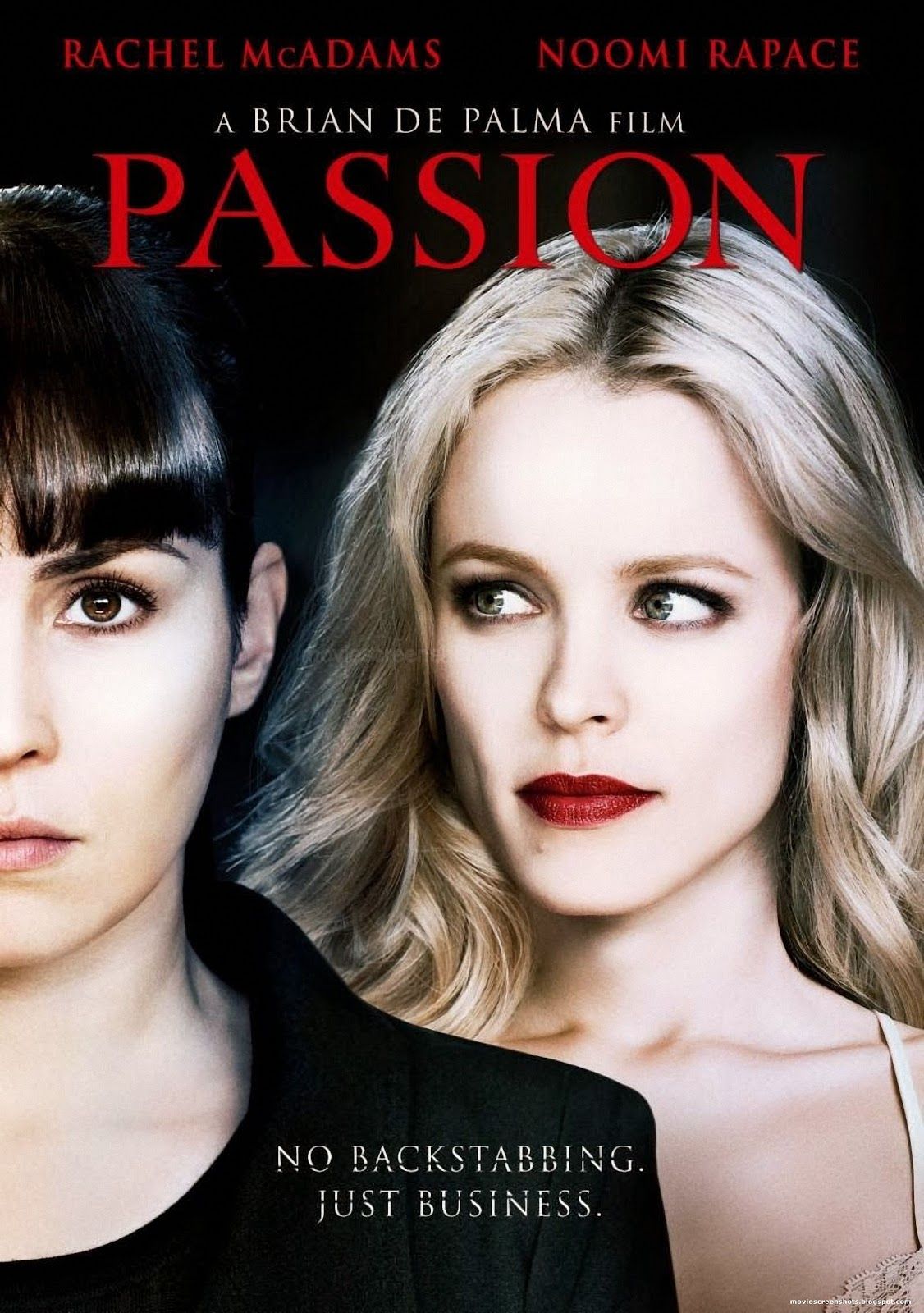

“And they never told me that they loved me ever again.”
Love Crime, Alain Corneau’s posthumously released swan song, is positively De Palma-esque. Kinky sex, betrayal, revenge, greed, psychological torment, drug abuse, shocking bursts of violence. De Palma’s English language remake slots perfectly into his large body of work, which in his twilight years has sadly tapered off into self parody. That is to say, it’s barely watchable. A hackneyed effort, written by the director himself, Passion begins with a modicum of promise and quickly devolves into a confused muddle of caricatures, recycled ideas, and inane twists and simply never recovers. But then again, it doesn’t even really try. In fact, the director seems to be content to lackadaisically rehash his greatest hits without much passion at all, leaving audiences with a watered down version of a once-transgressive artistic vision that lacks all the energy and intrigue that used to ooze from the screen.
Isabelle (Noomi Rapace) and her boss Christine (Rachel McAdams) work for a high-end advertising firm. Isabelle has learned the ropes well enough to have her own assistant, Dani (Karoline Herfurth), but she hasn’t quite grasped the dog-eat-dog nature of the business. When Isabelle and Dani create a viral ad for a smartphone, Christine takes credit for the idea in order to land herself a huge promotion and a corner office in New York. Isabelle and Christine become professional rivals, complicated by the fact that they seem attracted to one another and are both sleeping with the same man—Dirk (Paul Anderson), who is embezzling money from the company with Christine’s help. To describe the ensuing twists as cutthroat would be to describe at least one of them literally.
The opening act starts with a bit of potential, returning to themes that De Palma’s previously explored in Sisters, Body Double, Femme Fatale and elsewhere. Most prominent are the motif of a sexually charged dual identity—whatever we want to make of that—and notions of voyeurism and the artificiality of images. Christine and Isabelle each see something of themselves in the other—comparing, projecting, and possessing one another in increasing measure as tensions escalate. When Christine is murdered while Isabelle is strung out on sleeping pills to combat her restlessness, she’s accused of the crime on false evidence. Several times we are sucked out of a dream sequence to question what we’ve seen. Did Isabelle hallucinate the murder? Or did Dirk enact the crime? But wait, isn’t Christine’s sister dead… then who is the new Rachel McAdams character? Is she actually brutally enacting revenge on Isabelle or is that a dream too?
Unlike prime De Palma, though, old man De Palma is unable to wrangle a pulpy story into a palatable form and marry it to provocative, sometimes even thoughtful, themes. Indeed, his script is so bland that McAdams and Rapace act with unfortunate trepidation, uncertain if they’re in a campy self homage or an earnest attempt at a return to form. (McAdams seems to have been asked to play her character from Mean Girls pretending to be an adult.) But Passion is neither of these because the screenplay is so clumsy and stilted to generate any response—emotional or intellectual. It also doesn’t help that McAdams and Rapace appear to go together like ice cream and whiskey.
Other production choices haunt the film too. An oppressive, corny, outdated score intrudes in all the wrong places. There’s a glaring stylistic shift part way through and a subsequent overuse of Dutch angles and excessively fussed over lighting, though there are several cool uses of split diopter. The only inspiring moment comes when a ballet performance is shown in splitscreen with Christine’s murder. The soap opera production value combined with a plot that feels like a lazy episode of a police procedural screams pastiche but the initial setup is completely humorless, and so we’re forced into this odd position of trying to take a joke seriously. It’s just baffling to me that a man who’s made like thirty feature films in his career and achieved great success in the past blew through $30M with only this silliness to show for it. (As an aside, I wonder how much Apple ponied up to have their logo taking up the bulk of the frame in the film’s opening shot?) Even though I find the style cloying, I’m willing to accept that it simply isn’t to my taste rather than simply bad. But like other De Palma efforts, his screenplay is simply a vehicle for his thematic ruminations and visual flair. And in Passion, the themes of voyeurism, obsession, violent sexuality, etc. and the favored style feel like shallow posturing, wrapped around empty characters sleepwalking through dull twists.
On paper, Passion is an erotic thriller. Occasionally the rather tame depictions of sexual pleasure might make sensitive viewers a little hot under the collar. Otherwise there is nothing here that feels erotic or thrilling in the slightest. It feels like a ‘90s cable television ripoff of De Palma’s good stuff. A cynical exercise, sterilized and lifeless.